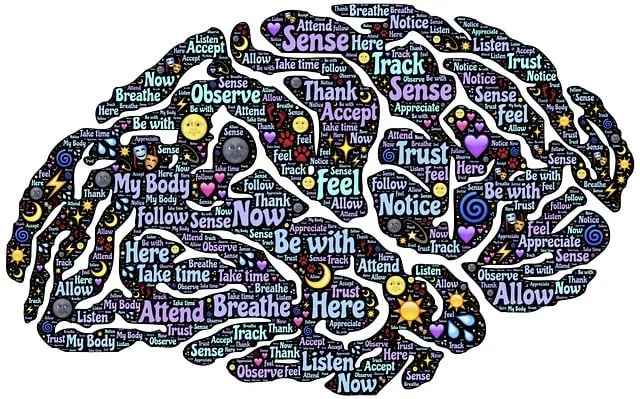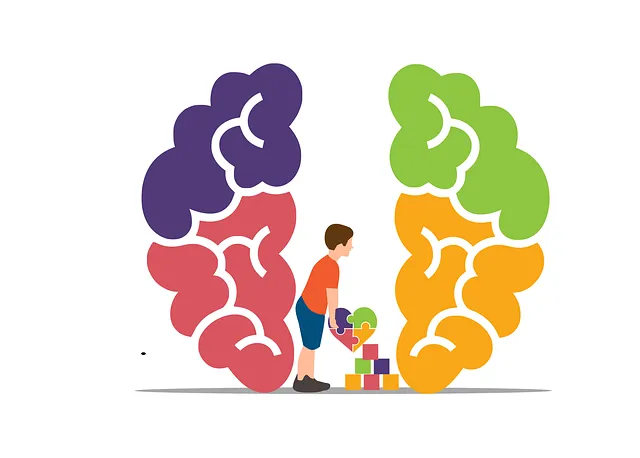Lakewood Kaiser mental health programs prioritize cultural sensitivity, using effective communication and emotional intelligence to build trust with diverse clients. They employ culturally sensitive language, active listening, and non-judgmental attitudes to create supportive environments that empower emotional well-being. Through holistic strategies including training in cultural competence, they enhance care, prevent provider burnout, and foster inclusive healthcare environments for all.
In today’s diverse society, cultural sensitivity is paramount in mental healthcare. Understanding and respecting different cultural backgrounds, values, and beliefs can significantly enhance patient outcomes. This article explores key aspects of providing culturally sensitive care, drawing insights from innovative programs like those at Lakewood Kaiser. We delve into the importance of cultural competence training, ethical considerations in cross-cultural practice, and how these strategies improve patient experiences. Discover how organizations like Lakewood Kaiser are revolutionizing mental healthcare through inclusive practices.
- Understanding Cultural Diversity in Mental Healthcare
- Lakewood Kaiser: A Model for Cultural Sensitivity
- Enhancing Care through Cultural Competence Training
- Navigating Ethical Considerations in Cross-Cultural Practice
Understanding Cultural Diversity in Mental Healthcare

In today’s diverse society, mental healthcare professionals must embrace cultural sensitivity as a cornerstone of their practice. Understanding and appreciating the rich tapestry of cultural diversity is essential for providing effective treatment to a wide range of clients. This includes recognizing that individuals from different ethnic, racial, religious, and socio-economic backgrounds may have unique perspectives on health, illness, and healing. At Lakewood Kaiser mental health programs, we acknowledge this crucial aspect, ensuring our services cater to the diverse needs of our community.
Effective communication strategies and emotional intelligence are vital tools in navigating these cultural differences. Healthcare providers should employ active listening, clear and culturally sensitive language, and non-judgmental attitudes to foster trust and open dialogue. By integrating techniques for promoting emotional well-being that resonate with various cultural contexts, mental health professionals can create a supportive environment where clients feel understood and empowered to take charge of their emotional health. This personalized approach, inspired by the rich tapestry of our community, underpins quality care at Lakewood Kaiser.
Lakewood Kaiser: A Model for Cultural Sensitivity

Lakewood Kaiser stands out as a beacon of cultural sensitivity within mental healthcare, offering a comprehensive model that integrates diverse therapeutic practices with a deep understanding of various cultural contexts. Their innovative mental health programs are designed to cater to a wide array of communities, ensuring that everyone receives care tailored to their unique needs and backgrounds. This approach is not merely about treating symptoms but fostering resilience by respecting and embracing cultural identities.
The organization’s success lies in its holistic strategy that encompasses Mental Health Policy Analysis and Advocacy, highlighting the importance of systemic change. By advocating for policies that support cultural sensitivity, Lakewood Kaiser aims to prevent burnout among healthcare providers while enhancing services. This model is a testament to the power of integrating cultural awareness into mental health practices, ultimately improving patient outcomes and fostering more inclusive healthcare environments.
Enhancing Care through Cultural Competence Training

Cultural competence training is a cornerstone for enhancing care at Lakewood Kaiser mental health programs. By equipping healthcare professionals with the knowledge and skills to navigate diverse cultural backgrounds, these programs foster more inclusive and effective treatment environments. This training empowers clinicians to understand and appreciate the unique perspectives, values, and beliefs of their patients, leading to improved communication, higher levels of patient engagement, and better clinical outcomes.
At Lakewood Kaiser, mental health education programs are designed with a focus on burnout prevention and self-esteem improvement for both providers and clients. Through interactive workshops, case studies, and cultural sensitivity simulations, these programs not only equip practitioners with the tools to deliver culturally sensitive care but also help them develop resilience against potential stressors related to working with diverse populations. This holistic approach ensures that both mental health professionals and their patients can thrive in a supportive and respectful setting.
Navigating Ethical Considerations in Cross-Cultural Practice

Navigating ethical considerations is an integral part of providing culturally sensitive mental healthcare, especially when working with diverse populations like those served by Lakewood Kaiser mental health programs. Cultural sensitivity in this context requires understanding and respecting different beliefs, values, and practices that may shape individuals’ experiences of distress and healing. For instance, what constitutes appropriate treatment or support for a patient from a certain cultural background might differ significantly from another’s expectations.
Healthcare professionals must be vigilant about potential biases and power imbalances inherent in cross-cultural interactions. This involves actively listening to patients, their families, or communities they belong to, and seeking clarification when needed. By doing so, practitioners can tailor their approaches, ensuring that services like Trauma Support Services offered by Lakewood Kaiser are accessible, effective, and respectful of the unique cultural contexts of individuals seeking mental health care. Public awareness campaigns development centered around these themes can also foster an environment where cultural sensitivity is prioritized in healthcare systems.
Mental healthcare practices that embrace cultural sensitivity and competence are not only ethical imperatives but also key to improving patient outcomes. As seen with Lakewood Kaiser’s successful mental health programs, integrating cultural considerations into care enhances accessibility and effectiveness. Through comprehensive training, ethical navigation, and a deep understanding of diverse communities, mental health professionals can provide tailored support, ensuring that every individual receives respectful and competent treatment, regardless of their cultural background. This approach not only respects patient autonomy but also fosters better community engagement and overall well-being.






